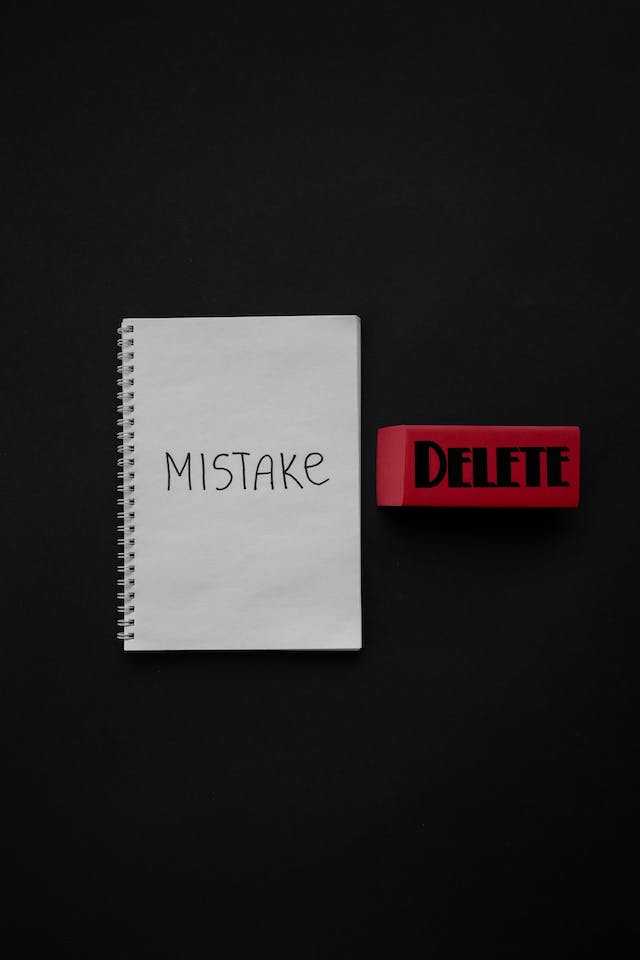An interview can win or lose you a job. If you show up and ace your interview, then it stands to reason that you have a good chance of winning the job.
The truth is that in most cases an interview is a contest and everyone who is lined up to interview is a contestant. The job is the prize. If you show up dressed inappropriately, or if you say the wrong things during your interview, then you might end up walking out empty.
Now, there are some things that we just won’t cover in this article. Obviously we are not going to discuss how you should dress for an interview.
We’re also not going to cover interview blowups like showing up late, showing up drunk or high (it happens) or showing up and getting into a fight with someone in the office (not common in the corporate world, thankfully).
This article is designed for working professionals who want to avoid saying the wrong thing during an interview. It might seem like you know what to say, but now let’s take a look at what you shouldn’t say.
Don’t Criticize Your Last Job
One of the worst things you can say on an interview is something negative about your last job. It’s widely accepted that someone who complains about their last job is trouble. There are only two options. Either the last company wasn’t great, in which case the person should focus on growth: “I’m looking for more growth.”
The second option is that the person is a malcontent, and they are a problem candidate. In this case, they won’t get the job.
It’s not considered professional to criticize your last place of work. This is especially true in the corporate world. In the pubic sector (including publicly funded work such as Nurses) it’s common for companies. There’s a incredible demand for nurses (as well as a taxpayer funded system) that hospitals are more leniant in hiring standards. It’s also one of the reasons nurses make so much money.
But if you are interviewing for a private sector role, then it would be a terrible misstep to go ahead and criticize your last boss. It puts you into the category of people who are simply undesirable to hire.
In most cases, if you look at the resume of the person you will see how the story adds up. People who job hop tend to be people who are problematic. While it’s true that someone you are laid off, or the company moves, but if it’s one story of a bad office environment after another, then you know that it’s just something off about the candidate. Those are the types of people who find trouble wherever they are.
Never Mention Gambling, Influencers, or Fake Jobs
Some people might not have worked in a long time and have career gaps. These look bad, but it looks even worse if you are making up fake jobs.
Employers are not going to fall for it. If you tell an employer that you were an Instagram influencer, then you won’t get the job. Everyone who has an insta account claims to be an influencer.
If you were a successful influencer, then you wouldn’t need to apply for work and have an interview. So stop pretending and embarrassing yourself.
There are only two types of people who you’ll run into:
- Those who know you are not able to support yourself by being an influencer
- Those who are fooled, but they will assume that an “influencer” will not be a good fit for the job.
The same thing goes for gambling. It would surprise you how many people claim to have been professional gamblers. I have interviewed many men who list working as professional poker players or professional sports betters on their resume, when it is easily proved fake.
It’s embarrassing to have someone claim that they are a professional gambler and then get nervous when you ask them follow up questions that they can’t produce answers for.
I reached out to a recruiter who worked in investment recruiting for close to ten years. Here’s what she had to say about gambling and resumes.
At one fintech firm I was a recruiter at, we had a whole string of men claim that their large career gaps were due to betting on sports or poker and making money. In poker, for instance, there are publicly available databases that list players.
The team we had weren’t stupid, and they didn’t like their time being wasted, so we made it clear to junior recruiters that it someone claimed to have been a “pro” sports better or a poker player they had better have receipts. They wanted Hendon Mob listings or Daily Fantasy scores.
The end of the story is that not a single one of the people who claimed to have been making money at gambling was ever hired. Why? Well, most were faking it to try and cover up for career gaps.
Our COO basically told us, if they were successful at what they claimed, they wouldn’t need to interview for a job they would be able to make money on their own. So they either were failures or liars.
Other fake jobs include DJ, Independent Event Planner, and other things that can’t be verified. The end of the story is that unless you have had a real job, don’t make up a fake one. So, don’t be foolish and lie and put professionoal poker on your resume, you just can’t get away with it in the real corporate world.
Hiring managers and recruiters are not foolish, they are also not impressed with fake jobs. If you walk into an interview and pretend to have some elaborate work history involving gambling, poker, sports betting or working as an influencer, then you’re going to end up without a job.
You Want To Be The Boss
One of the absolute worst things you can say during an interview is that you want to be the boss. It’s insulting and it’s also a naive thing to think.
While some people might aspire to run a business, most people aren’t obnoxious enough to tell the person they are interviewing that they’ll take their job.
Put it into perspective, when someone is looking to hire a new employee, they don’t want to hire someone who is planning on taking their job. No matter how outlandish that seems, it’s something that people don’t want to hear.
While it’s admirable to be a high achiever and have lofty goals, it can all too often come across as delusional. Someone who is interviewing for a job might sound like they are childish if they claim to want to “run the company”, not to mention that this is a very aggressive approach to dealing with someone. Don’t try and guess what the itnerviewer wants to hear on an interview, just be honest and expres your desire to work. There’s a good article in the WSJ that discusses the problem of “acting” during a job interview.
So, when you are asked about your future goals, or where you see yourself in a few years, do not say you want to be the boss. That will never get you the job, no matter what self-help gurus and phony life coaches will tell you. Speaking like this is a major red flag. Remember, there are red flags on resumes, and there are red flags in conversation and this is one of them.

Jennifer Miller- Recruiter and career advisor. Here to share wisdom to help you learn how to work with recrutiers. If you’ve got any questions, feel free to send me a question and I’ll do my best to answer it!
You can also check out some of my writing at Medium here.

